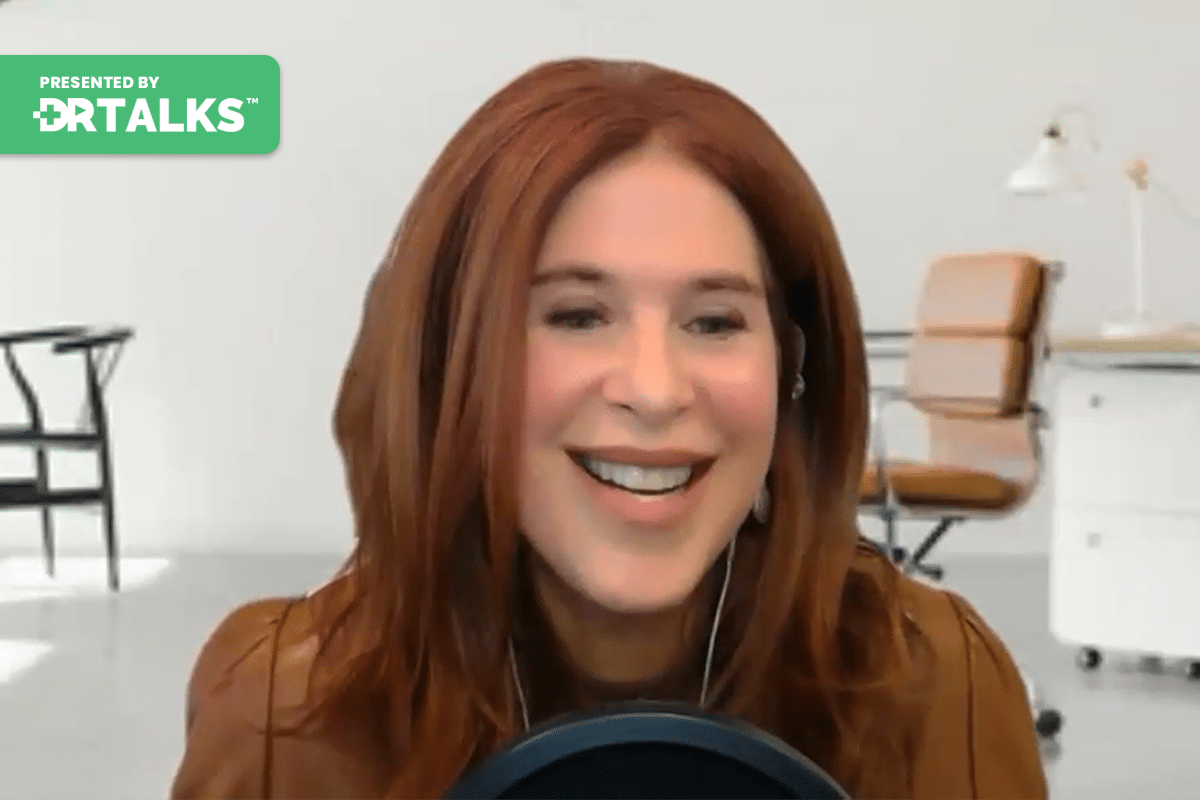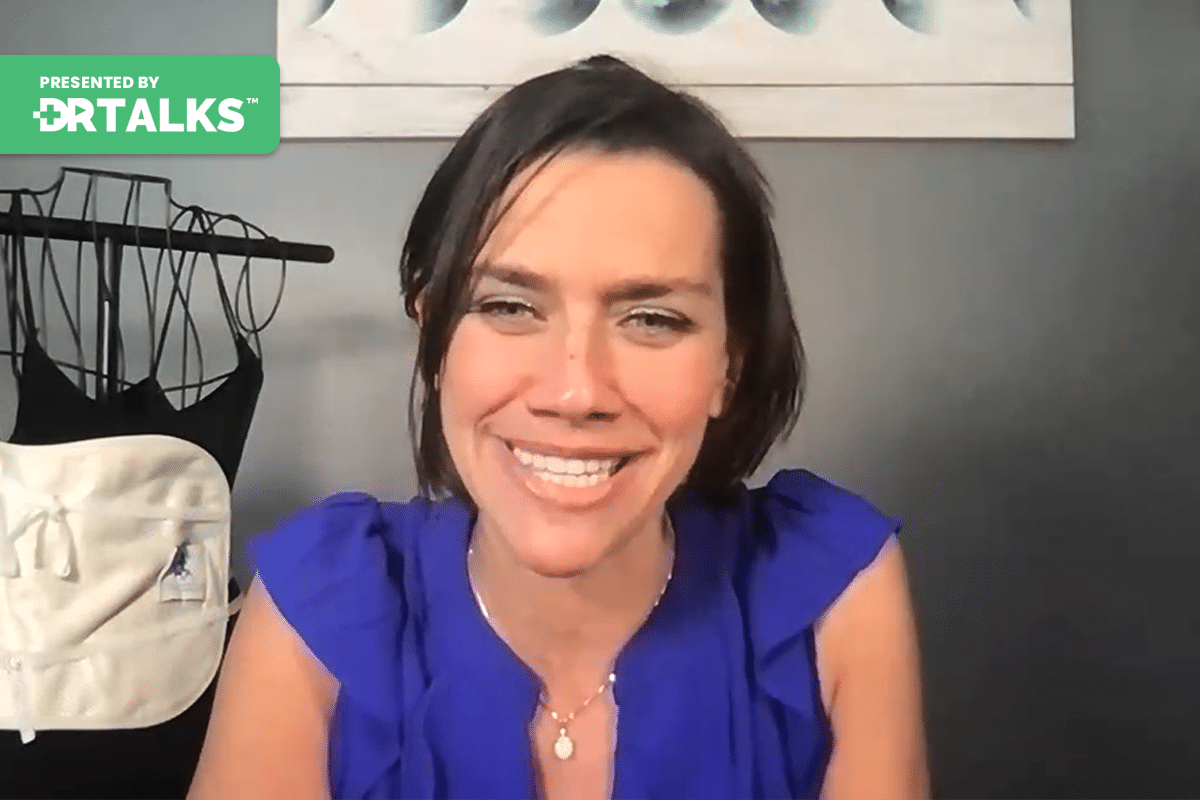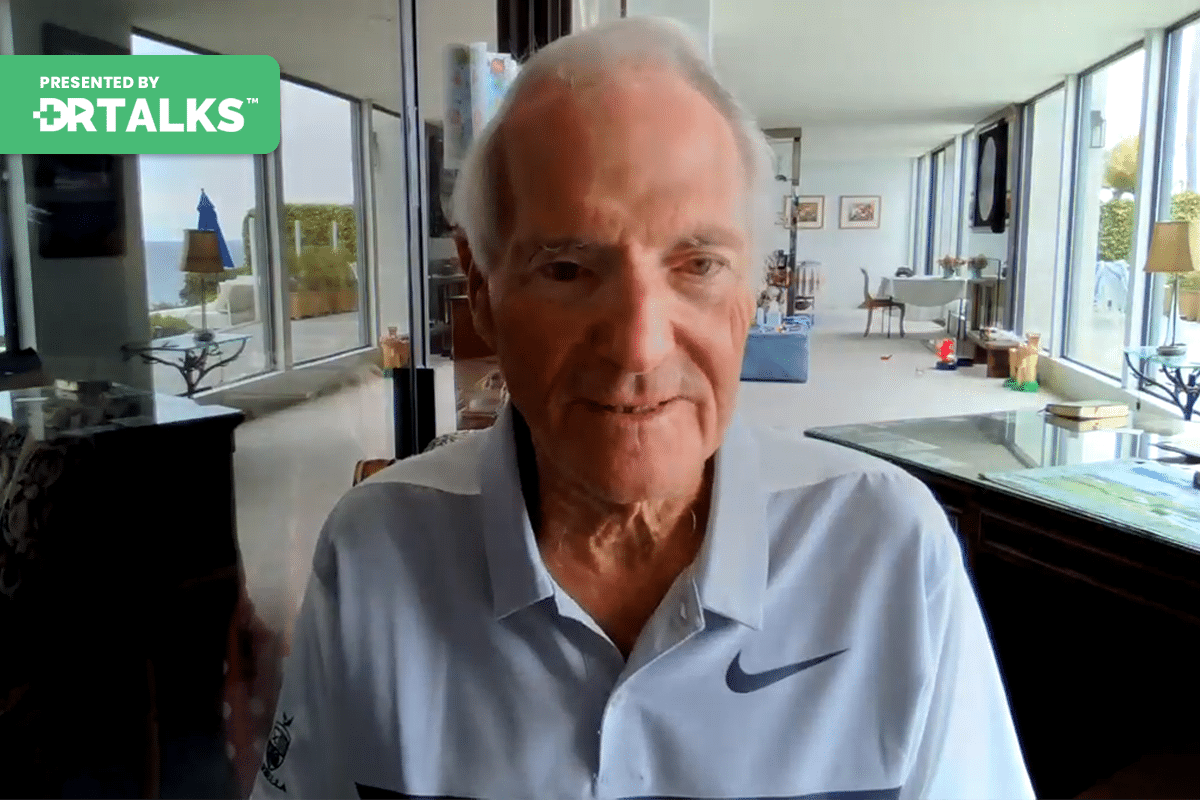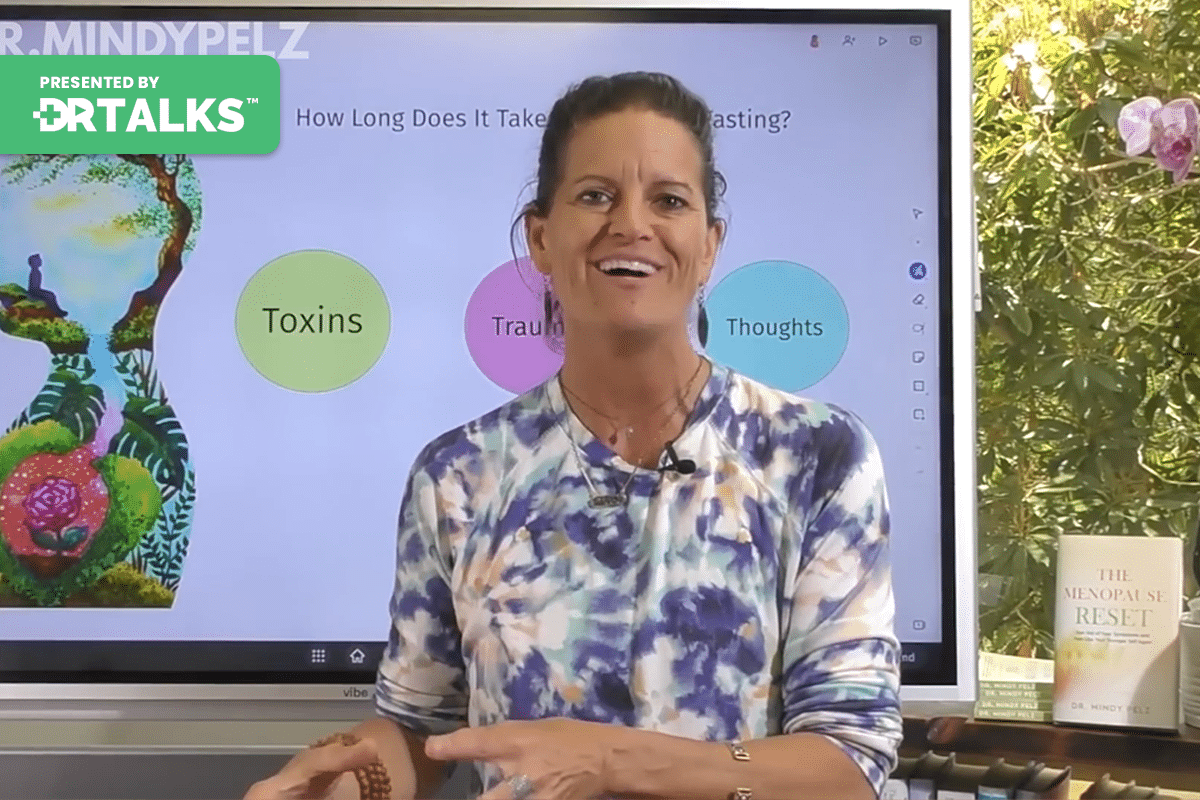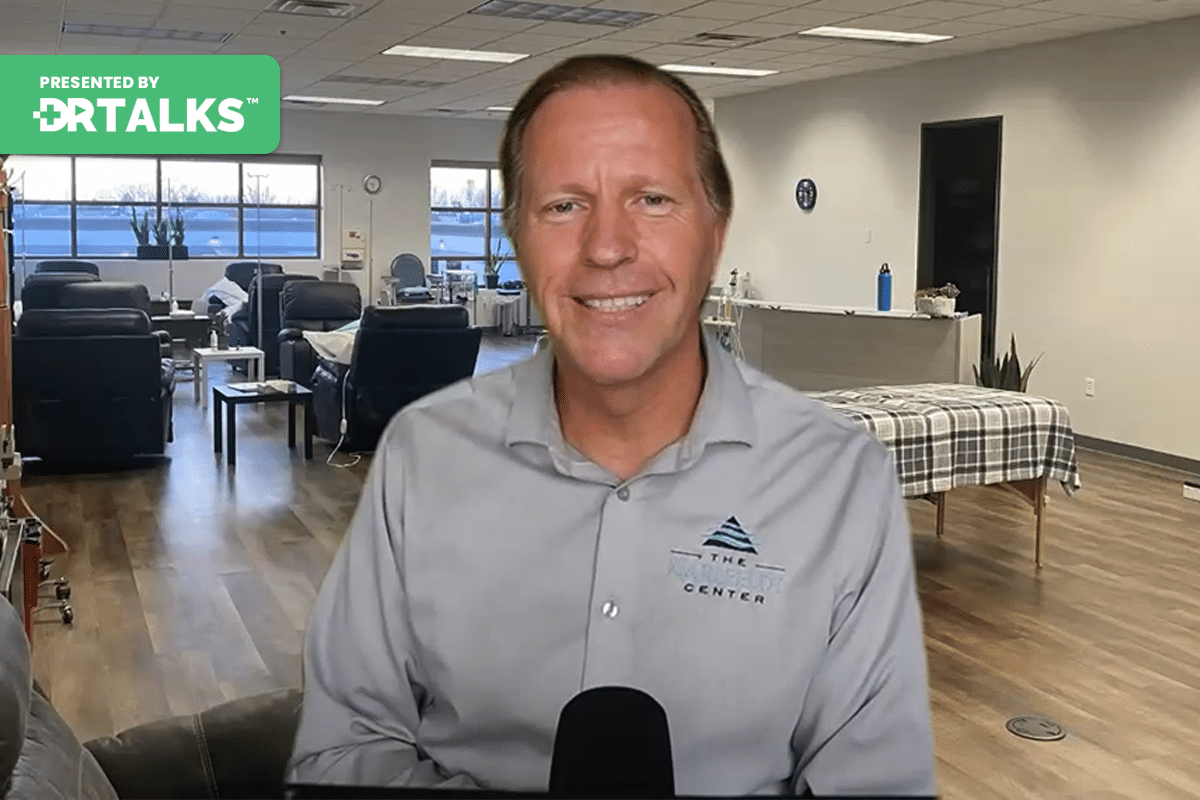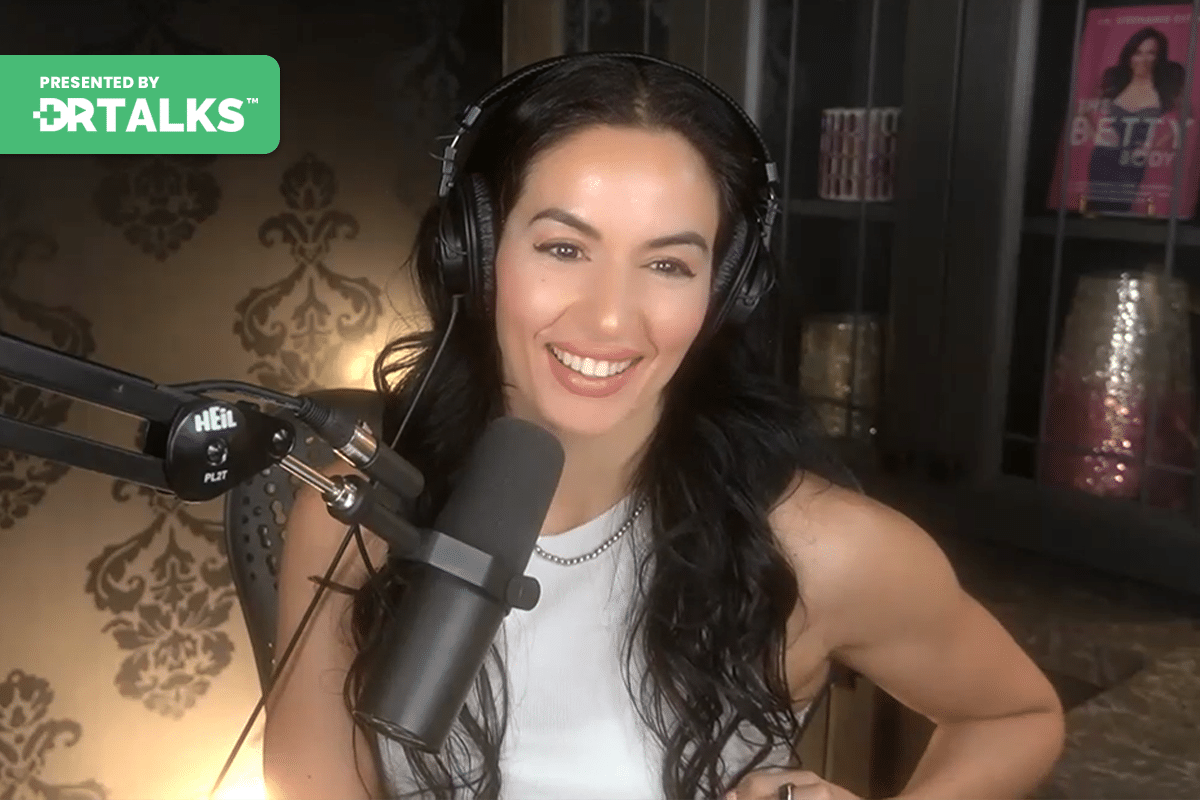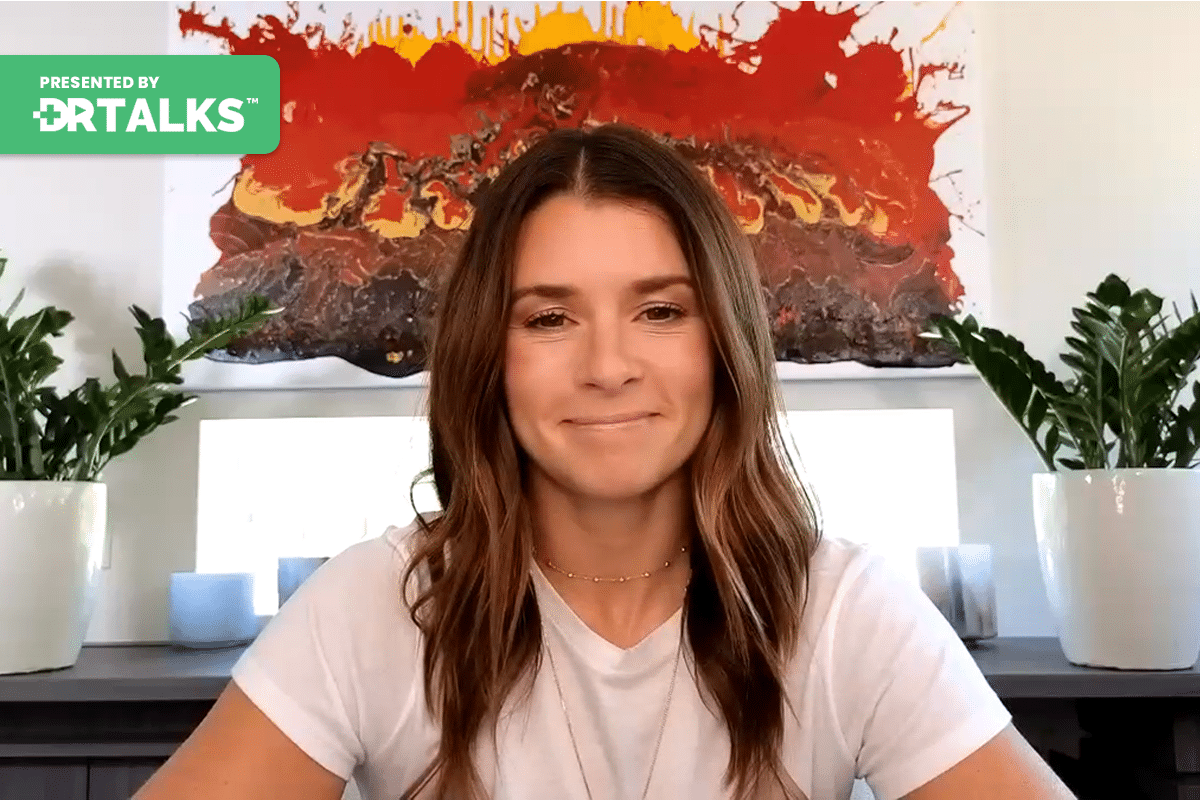Join the discussion below
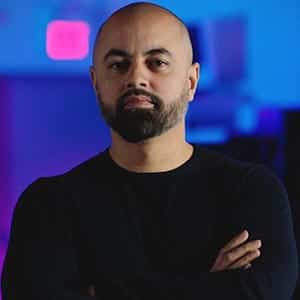
Kashif Khan is the Chief Executive Officer and Founder of The DNA Company, where personalized medicine is being pioneered through unique insights into the human genome. With the largest study of its kind globally, The DNA Company has developed a functional approach to genomic interpretation overlaying environment, nutrition, and lifestyle... Read More
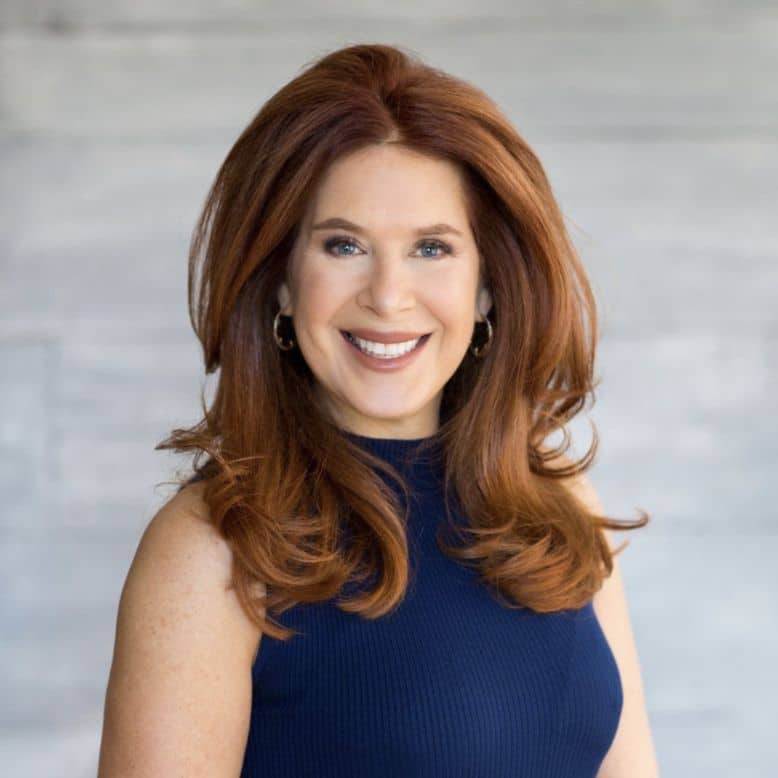
Dr. Jenn Simmons was one of the leaders in breast surgery and cancer care in Philadelphia for 17 years. Passionate about the idea of pursuing health rather than treating illness, she has immersed herself in the study of functional medicine and aims to provide a roadmap to those who want... Read More
- Delve into the reasons why breast cancer may have its roots in the gut and take proactive steps to monitor and improve your gut health
- Arm yourself with knowledge on the two main drivers of breast cancer and understand how to protect yourself
- Recognize the crucial role your immune system plays in breast cancer prevention and commit to nurturing it
Kashif Khan
Hello everyone, welcome back. We’re speaking to a dear old friend, Dr. Jenn Simmons, who, for a couple of years now, I’ve been getting emails from her about breast cancer. I’ve been reading them and thinking, Wow, this person really knows what she’s doing, because it’s so much more than just, Hey, you have family history; let’s just wait and see what happens. And it’s such a scary problem if you’re a woman, because, as you hear, it’s one of the biggest things that women are worried about and looking out for because it’s a big problem. So, first of all, thank you for joining us.
Jennifer Simmons, MD
Thank you for having me.
Kashif Khan
It’s a pleasure. I truly like what I read, what you write, and you had a summit last year that I listened to about breast cancer. There’s so much more to know and so much more to say than what’s going on there. First of all, numbers are going crazy. They’re just so much more prevalent. What’s happening there? Why is it more so?
Jennifer Simmons, MD
The numbers are going crazy; it’s twofold. The first part of it is that we are coming off of three years of significant immune challenges. Right? The world went crazy, and everyone’s immune system took a hit. Whether it took a hit because you were vaccinated, whether it took a hit because the stress of that time was unimaginable, or whether it took a hit because you were either running yourself rampant or worried about where your next chapter of your life was going to go, that was an extremely stressful time that overtaxed our immune system. Our immune system is one of the things that keeps cancer in check. We all make cancer cells, so let’s just get it out there. We all make cancer cells from the time that we’re born to the time that we die. We are making cancer cells because it’s just a result of reproductive error. Right? You’re not going to do everything perfectly every time. You’re going to make mistakes. We all make them. But an intact immune system will recognize those cancer cells in their infancy and destroy them. But when your immune system is distracted, when your immune system is overworked and overtaxed, it’s not going to be able to recognize those cells in their infancy, and if they’re allowed to proliferate, they can become clinically relevant. They can become a cancer. They don’t all and they don’t have to, but they can become cancer. That’s one of the reasons why we’re seeing an increased prevalence, because our immune system is just being overtaxed. Now, the second thing that we’re seeing, and this is probably the most important thing, is that there are so many environmental estrogens. I want to get something clear from the start. Estrogen does not cause breast cancer. God did not create us with a hormone that causes cancer. That is not what’s happening, however. However, some people do have problems breaking down those hormones..
They have problems in their detoxification process, and part of the hormone breakdown system does create intermediaries that are toxic and that can contribute to a breast cancer diagnosis. But what is dwarfing and eclipsing are the environmental estrogens. We call them xenoestrogens. These xenoestrogens, which are essentially ubiquitous, are everywhere. You have to be super conscious about decreasing your exposure to them. What’s happening is that, if you look at the estrogen molecule, it goes and sits on the receptor. A normal estrogen molecule will sit on that receptor. It does what it is supposed to do: dissociate and be broken down by your body, and that whole system is like a normal estrogen stimulatory system. It’s doing what it’s supposed to do.
Estrogen is stimulatory. It is a pro-growth hormone, for sure. But we need that growth. Right? There’s a reason why we have estrogen receptors everywhere in our body, literally everywhere. Which is why when women go through menopause, they get all of these complaints that are diffused. It’s not just about the loss of a period. They have problems sleeping, and they have anxiety. They have bone pain, joint pain, and advanced cardiovascular disease. They start to have bone loss. That’s because estrogen receptors are everywhere. These xenoestrogens that are in our ecosystem, and we’re talking about things like fragrances, plastics, antibiotics, and things that are put in our toothpaste and our products that we’re using on ourselves. Antibacterial things that are used to clean your home and your clothes, and all of these things and these volatile organic compounds, they all look like estrogen, though not exactly. If estrogen looks like this, they look a little like this.
They go and sit on that estrogen receptor because they’re close enough, but then they’re locked in, and they continue to stimulate the cell. These cells are getting overstimulated. Well, what happens when you get overstimulated? You’re going to make a mistake. It’s the combination of overstimulation from all of these estrogens and a taxed immune system, and suddenly you have a recipe for cancer. That’s really what we’re looking at right now. It’s the combination of those environmental effects, and to some extent, it is our genetic code because we will all have a different tolerance for the amount of toxin that we can clear.
Kashif Khan
Yes. So, the threat is the same. How long can you fight it for?
Jennifer Simmons, MD
How long can you fight it? Where is your immunity? Because an intact immune system negates all of this, but we have such an immune challenge right now.
Kashif Khan
Yes. A lot of people, most people, I would say, don’t think of cancer in the immunity bucket. They think of some separate, siloed immune system that triggers the cold and flu seasons. That’s what people’s very simplistic view of what this thing actually does versus it does everything like it’s constantly fighting everything.
Jennifer Simmons, MD
You cannot be healthy without an intact immune system.
Kashif Khan
A lot of functional medicine practitioners, when they’re focusing on immune health, focus on the gut because that’s where your immune system is. Is there a direct correlation there? When you’re working with patients, are you healing their guts to prevent or heal them?
Jennifer Simmons, MD
That is the very first thing that I’m doing with everyone. Well, the very first thing that we’re looking at is their gut health, and that’s because 70% of our immune system is housed in our gut. It sits one cell layer beneath the lining of our gut. We are through what we eat and what we drink. We are in constant contact with our immune system because it’s that microbiome that’s housed in our immune system, and our microbiome is completely dependent on what we eat and what we drink. When you’re nourishing that microbiome, and that’s a healthy microbiome, it’s sending health signals right to your immune system. But if you are not nourishing yourself properly and you don’t have a healthy microbiome, that is going to translate into an immune system that is challenged and weak.
Kashif Khan
That’s incredible, because how often do you actually hear, Oh, cancer, let’s focus on your gut. It’s never that. It’s more like, Let’s look at your BRCA gene.
Jennifer Simmons, MD
Right, the problem with the traditional mindset in terms of cancer is that all the focus is on the tumor. We need to realize that the tumor is not the problem. The tumor is the symptom of the problem. When you focus on the symptom, all you do is suppress that symptom, right? You cut out the tumor, you give people chemotherapy, you give hormone suppressive therapy, and you do radiation. All of these things are focused on the tumor, but you’re never changing why people got cancer in the first place. You’re not affecting their trajectory, so most women who get breast cancer don’t die of breast cancer. Most women who get breast cancer die of cardiovascular disease. It’s because it’s the same underlying inflammation that contributes to both. So unless you back up and negate the reason why people got breast cancer in the first place, unless you help them to decrease whatever that inflammatory driver is or eliminate that inflammatory driver, they’re just going to go on to manifest the next thing. All you’re doing is delaying the manifestation of the next thing. For some people, it is a breast cancer recurrence, but for most people, that’s not the case. Most people just go on to develop cardiovascular disease.
Kashif Khan
There was an article just in line with what you’re saying now. CNN, it was a couple of weeks ago; by the time people see this, it will be a few months. It’s said that there’s an elevated improvement in cancer levels, meaning that there’s less cancer now in women because they started recommending cutting out your fallopian tubes to prevent ovarian cancer based on a BRCA gene diagnosis. It’s exactly what you’re saying, is that this belief that somehow this fallopian tube causes cancer? Maybe that’s where it starts, and then maybe you get them in your ovaries because you’ve already cut your breasts off because of the BRCA genes. What do you have to say about this BRCA gene phenomenon? That’s the big thing that people start their prevention journey on.
Jennifer Simmons, MD
Unfortunately, people with a BRCA gene, and we should probably define that so that people know what those genes do, Those genes are actually anti-cancer genes. Those genes are protective. People who are born with a BRCA mutation, or a change in that gene, are usually born with one gene that works and one gene that doesn’t. Then, throughout the course of their life, they lose the function of that second gene, and now they are very vulnerable to developing cancers, mostly endothelial cancers like breast, prostate for men, and ovarian. These people are at increased risk because their anti-cancer system isn’t what it’s supposed to be.
What do we do with these people? We don’t give them advice on lifestyle modifications. We don’t give them advice on anti-inflammatory living. We tell them to remove their breasts, and because you can’t remove every single breast cell, they still have a 5% or 10% chance of developing breast cancer over their lifetime. So cutting off your breasts does not take you to zero. Then we tell them to remove their ovaries and fallopian tubes because of the process of ovulating every month. Those cells, those ovarian cells, some of them become a part of the fallopian tubes. By telling people to remove them, to try to remove any ovarian cells that we can. But those people still get ovarian cancer, too, because we never really help them to do the things that are truly preventative. So you can’t ever take away people’s risk, but you can make fundamental changes that change their risk profile significantly by helping them to manage their environment, optimize their ability to detoxify, decrease their toxic burden, and help them to promote their health and live the healthiest life that they can. I think that we’re missing a huge opportunity to teach people to be healthy, and instead we’re just saying, Live your life the way you’re going to live your life. Roll your dice, wait and see, and we’ll just cut off your organs.
Kashif Khan
Right.
Jennifer Simmons, MD
Now, these people really suffer. They really suffer.
Kashif Khan
And they actually believe that’s the only option. The cancer is innate, and they actually believe that breast cancer is breast cancer. It’s not cancer that happened; it manifested in my breast; it’s local to that, and if I don’t have a breast, I can’t get cancer. Right?.
Jennifer Simmons, MD
This is part and parcel to the problem that we think about breast cancer like, Oh, I have a bad breast, right? You don’t have a bad breast. Breast cancer is a normal response to an abnormal environment. It’s about thinking about what’s changing that environment. What is influencing that environment? That somehow makes the breast cells feel unsafe because all that’s happening is they’re going into survival mode. They’ve lost their ability to stop their growth because they’re just worried that they’re going to go away. And so it’s about resetting that environment so that those breast cells can then feel safe again and they don’t have to be in survival mode. And that is something that we do have control over, but it’s not coming with a surgical knife; it’s not coming with chemotherapy; and it’s not coming with hormone blockade. It comes with managing your environment. And this is what you have the control to do.
Kashif Khan
Here’s what’s really funny: supportive of everything you’re saying, the same CNN article, I was looking at it online, and the headline, like I told you, said, “Cancer is coming down because of interventions like cutting fallopian tubes out”. When you’re reading these online articles, they usually suggest another article to read that’s similar to what you’re reading, giving your topic of choice. That suggested article at the bottom said, “Why cancer rates are skyrocketing, and we’re going to explain why”. In the same article, that’s telling you that cancer rates are going down and that the skyrocketing had to do with lifestyle and chemicals. When you look isolated, and that’s a challenge, with what you call published medical data that is usually bucketed with blinders on, you’re looking at something in a silo. It’s not looking at the holistic broad view, like the way you’re describing it. You don’t get the full answer. You only get breast cancer or ovarian cancer. And when your thesis on step one is we’re only investigating the breast, then how are you ever going to get past that in biology? You’re not going to understand what the body is actually doing.
Jennifer Simmons, MD
You’re not. That’s exactly right. We are one system. You can’t have a healthy breast and an unhealthy body; it just doesn’t work that way. What we have to remember, and this is not about blame or shame, but breast cancer doesn’t happen in a healthy body. Healthy bodies don’t get sick. Now, I’m not saying that you’re not going to get a cold or you’re not going to get the virus that’s going around, because it’s not whether or not you get sick, it’s how you recover. But in general, cancer is a metabolic disease, and it is towards the end of an inflammation spectrum, right? You’re not inflamed for a month, and you develop breast cancer. This is something that is years in the making, and it’s not happening in a balanced body. Cancer is a reflection of its imbalance, and you can either choose to embrace that concept and say, Hey, I want to be healthy, so I want to figure out what’s happening, why does my body not feel safe, and how can I put myself back into balance? Or you can fight that and say, There’s nothing wrong with me. I’m doing everything right. This is just something that happened. That is what the traditional medical approach has been. They tell people that there’s nothing that you can do, that it’s not preventable, and that the only options are to use these traditional treatments. All the diet and lifestyle thing is just nonsense. We’re really not doing the people a service. In fact, we’re doing them a huge disservice and we’re taking away their power. The truth is that there’s no doctor who can be the hero of the breast cancer story. The only hero of a breast cancer story is the patient. A doctor can be a guide, but they cannot be the hero of that story. Until we really change that paradigm, we’re not going to make very much progress.
Kashif Khan
Yes, that’s so true. The quarterback. You are your own quarterback because it’s not the doctor’s visit. It’s everything in between.
Jennifer Simmons, MD
Health happens at home, right? It doesn’t happen in the doctor’s office, a chemotherapy suite, or a hospital. Health happens at home.
Kashif Khan
Everything we’ve been talking about up until now is about prevention and root causes. There are some people listening who may be dealing with cancer. I’ve read some of your articles. You’re obviously looking at the full spectrum. People are in different phases of this journey. There are people that are in treatment who are on chemo. You have amazing advice for these people, even things like the chemo diet, and what do you do to mitigate these things, or now that you’re in that acute response, Okay, you probably have to complete it? So what do you say for those people? What do they need to look out for?
Jennifer Simmons, MD
People who make a decision to get chemotherapy, and I don’t tell people what to do, right? So if chemotherapy resonates with you and you feel like it will help you, that is what you should do. In my practice, I often run a RGCC, and I will see what chemotherapeutic agents people are sensitive to and help to guide them. But let’s assume, for argument’s sake, that it’s your feeling that chemotherapy is going to be helpful for you, and you’ve already started or are thinking of starting. There are things that you can do lifestyle things, specifically your diet, that can materially change both. Your response to chemotherapy and the side effect profile of chemotherapy for you because the truth is that the hardest part of chemotherapy for people are the effect on their normal cells.
Kashif Khan
Yes.
Jennifer Simmons, MD
The side effects for a lot of people are unbearable, and they are long-lasting. Right? They don’t stop when chemo ends. People suffer for a very long time afterwards. If you can mitigate those side effects, wouldn’t that be wonderful? Well, the work of Valter Longo at USC, coming out of his data, is reproducible. What he does is he tailored his fasting mimicking diet. It is a way of mimicking a water fast but still allowing people to eat, because a lot of people find water fasts quite difficult. You can mimic water fast by eating a combination of foods. It’s mostly fats with a little bit of carbohydrate and protein, and you eat under a caloric threshold, and your body feels like it’s on a water fast, and what happens is that we are allowing the body to go into a state called autophagy, where our cells are really at rest and they’re in a repair state where they’re looking and seeing what is damaged and what is not damaged. Can we repair this? Can we not repair it? And do we need to get rid of this cell? It’s an opportunity to have the cells go into this kind of quiescent repair phase. But cancer cells can’t. Cancer cells are always on; they don’t have an off switch. That’s part and parcel of being a cancer cell. Right? What’s happening is these cancer cells get quite vulnerable. If you put people on a fasting mimicking diet for two days before chemotherapy, these vulnerable cancer cells then take up the chemotherapeutic agent, and they have a very significant and heightened response, while the normal cells are quiescent. Why? Because, they’re not in a steady state; they’re not active, and so they’re not taking up this chemotherapy. You take someone who has all kinds of side effects from chemotherapy and you basically get rid of them.
I’m going to share a story of a woman who I treated this year. She’s 39, and she’s a nurse. She has stage 3 breast cancer, a pretty advanced stage of breast cancer. She had to take doses of chemotherapy before we started to work together. She was having all kinds of side effects, horrible nausea, reflux, and dizziness. But the worst part was that she was having so much neuropathy, tingling, numbness, and tingling in her hands and her feet, really intolerable, like she couldn’t even walk. Before the third dose of chemotherapy, I asked her to do the fasting mimicking diet, and she would typically spend, she told me, two days in bed afterwards because she was so dizzy. Her third dose, she fasted for two days before and the day of chemotherapy, and I just have her do the fasting mimicking diet; she’s eating, but she’s eating a little bit, and during chemotherapy she’s sipping on green tea with ginger and lemon. She not only did she not get the neuropathy, but the neuropathy that she had backed off. She had energy; she had no side effects from that third dose of chemotherapy at all. She went on to finish her course of chemotherapy and now has no neuropathy at all. It’s completely reversed. Having done the fasting mimicking diet through treatment, it made a huge difference, and she had no tumor response from the first and second treatments. The tumor has subsequently shrunk each and every time since then. It changed her tumor from being unresponsive. She had a horrible side effect profile to having energy, being able to sleep, not having pain, and her tumor was responding. I understand that’s anecdotal, but this is consistent with what Valter Longo is saying in his studies, and I have story after story like this. While minor anecdotal certainly, there is a clearer pattern of people being able to tolerate chemotherapy in a totally different way. The other thing, even the negative studies, because I did a complete study of all the fasting mimicking diets, even the negative studies, show that for these people, we usually we have to give high-dose steroids like dexamethasone along with chemotherapy so that people tolerate it, and that raises blood sugar, which raises insulin, which raises insulin like growth factor, which is actually like a turn-on for growth promoters.
So we’re giving people chemotherapy and steroids; we’re basically putting fuel on people’s fires. When you do the fasting mimicking diet because you don’t have the side effects of chemotherapy, you no longer need the dexamethasone. This makes a huge difference for people. This is the difference between responding and not responding because you’re not taking the growth factor along with it and neutropenia. A decrease in white blood cells is a huge problem during chemotherapy, and people were able to use the fasting mimicking diet, not get the neutropenia because their cells were quiet, their normal cells were protected, and not any growth factors. These are major breakthroughs, all from just eating in a different way around chemotherapy. I mean, this is mind-blowing.
Kashif Khan
In one way. It’s powerful and it’s like.
Jennifer Simmons, MD
And it’s free.
Kashif Khan
Part of adding a growth factor, and when you’re trying to fight something that is growing, Believe that as we go. You remind me, I knew this information, but I wasn’t thinking of it. It’s just so absurd. How do you actually deal with an oncologist with whom you’re coming in for support? We know what that’s like. There’s a protocol in place; here, I’m doing what I’m doing, and some other doctors are talking about eating fat and sipping tea. But, what is this stuff? But that is the solution. How do you deal with that when it comes to partnering with other clinicians?
Jennifer Simmons, MD
It’s not easy. First of all, most medical oncologists do not want to talk about it because they don’t want to be involved in such trivial nonsense. To them, like, Okay, eat whatever you want. Don’t take any supplements because it might interfere with my chemotherapy, and they don’t want to hear about the nonsense. I like the ones that say, It can’t hurt; it may be able to help. Do whatever you want to do. The ones that say what you eat doesn’t matter are a little harder to deal with because they’re so far from understanding the big picture, and there are still so many medical oncologists out there that say things like, Don’t lose weight; do whatever you have to do to not lose weight, and they’re saying this to overweight people. Because the truth is that 80% of cancers, as well as as a society, only 12% of us are metabolically healthy. These are scary statistics. Right? 84% of people are metabolically unhealthy. What do you think the percentage of cancer patients who are metabolically unhealthy? It’s near 100%, right?
Kashif Khan
Yeah.
Jennifer Simmons, MD
And most of our cancers are obesity-driven cancers, right? Breast cancer, prostate cancer, uterine cancer, ovarian cancer, and colon cancer. These are obesity-driven malignancies. To tell this person, who is in this deranged metabolic state, to not lose weight is like the worst thing that you can say to them. Now, I know where it comes from, right? It comes from associating C Xia, which is like a very advanced stage of cancer, where the tumor is just so metabolically active that people are losing weight no matter what’s happening; they’re in a wasting state. So I know that’s where their thinking comes from. But the woman who’s five, three, and 190 pounds, and you tell her not to lose weight during chemotherapy, so she doesn’t, and she eats the ice cream and pizza that they tell her to eat, and she gains 20 or 30 pounds during chemotherapy because of that. She’s worse off afterwards than she was before, and she took in all that toxicity.
We didn’t help that person at all. The truth is, the very best thing that you can do for yourself when you’re on a cancer journey is get to your ideal weight. The way that we do that is through what we put in our mouths. Exercise is wonderful, and I believe in exercise. It has so many benefits. It is the very best thing that you can do for your mental health. It far outweighs any antidepressant there is. It’s great for weight maintenance, but you’re not going to lose weight because you’re exercising. You’re going to lose weight because of what you’re consciously putting in your mouth, how you’re doing it, and when you’re doing it.
Eating in a peaceful manner when you are in a position to receive nutrition, so eating on the go is terrible for you. Terrible. You’re eating in a way that you’re able to receive that nutrition. You’re eating the right kinds of foods, and you have a fasting practice. Because every time we eat, because 70% of our immune system is housed in our gut, every time we eat, it’s an immune challenge. Every single time we eat. If we want a healthy immune system, we need to give our immune system a break. That’s what fasting is. Fasting mimicking diet during chemo, but even when you’re not getting treatment, you have to have some fasting. You have to give your system a break. You have to allow it to repair the body and know what to do. We just have to give it the space and time to do it.
Kashif Khan
What are the few foods that fuel cancer cells? I know I keep hearing what refined sugar is like a buffet for cancer cells.
Jennifer Simmons, MD
Exactly. So most cancers, not all, but certainly the ones that are tied to obesity and metabolic disease, are reliant on sugar. The more sugar in your diet, the more insulin in your diet. I mean, the more insulin in your body, the more insulin-like growth factor you make, that is a growth hormone for cancer. So we want a low-glycemic diet. So the way that we get a low-glycemic diet is, first of all, eliminating processed foods goes a long way towards metabolic health for so many reasons, but not the least of which is that if you eliminate processed foods from your diet, you know what else? You’re eliminating a significant chemical burden.
Kashif Khan
Right?
Jennifer Simmons, MD
Because almost all of those foods are, first of all, GMOs, they’re genetically modified, they’re already not recognized as food by your system, so it’s an immune challenge. But pesticides, herbicides, fungicides, all glyphosate, like all of the things that are used to grow and produce those processed foods are really contributing to our overall chemical burden. This is a huge problem. Cancer is your body being in excess of the amount of chemical burden that you can’t handle. Right. You’ve exceeded your toxic load, and that’s when cancer is happening. When you remove processed foods, you get rid of a significant amount of chemical burden.
We want to eat foods that are nourishing. We want to talk about eating whole food, plant-based so that you are really getting the things that nourish you because that’s where all the phytochemicals that’s where all the nutrients are coming from. They’re coming from these non-starchy, very colorful vegetables, and that should make up the vast majority of your diet. Then, we can have a philosophical debate about where your protein comes from. I think it’s very easy to meet your protein needs on a plant-based diet. But for the people who absolutely can’t do that, I just say, Be really mindful of the source. You do not want any factory-farmed meats. You do not want any farm-raised fish or shellfish, because those things are very pro-inflammatory, and you don’t want them in your system at the time where your system really needs to be cleaned up.
Kashif Khan
It makes a lot of sense. When it comes to the hormone disruptors you’re talking about earlier, you’ve mentioned some of them now that are typical that people may know; is there a resource somewhere where people can go to learn about things that maybe they wouldn’t guess on day one, like somewhere?
Jennifer Simmons, MD
First of all, I think everyone should get to know the Environmental Working Group. EWG.org has all kinds of guides on how to clean your house, how to use body products, and that kind of thing. I have a course called My Answer to Breast Cancer, which really helps everyone lay out every single thing that they need to create that optimum environment and drive their health. I have plenty of resource guides there. The best thing that you can do really is to pare down your routine, because if there are a bunch of chemicals in what you’re using to clean your house, using to clean your skin, using to clean your hair, putting on your body, we should be looking at food labels. I tell people to drink plant-based milk, but I don’t mean the ones that are filled with sugar, gum, and all of those things.
I happen to make my own nut milk. But if you’re not going to make your own nut milk, the Elmhurst brand is just the nut and water, and salt. Right? If you’re going to purchase things, be conscious, read the labels, and make sure you know what you’re getting. I clean my house with Thieves, which is an essential oil blend, water, vinegar, and lemon juice. There are ways you don’t have to kill everything. We have a mutual friend called Sachin Patel, and I will never forget that he said, People think of things being clean; they associate that with the smell of bleach. Bleach is the smell of death. That is not what you want. That horrible smell as you breathe it in is killing your cells, too. So be mindful about what you want to do, and we need to stop sterilizing our environment. But the only way that our immune system is going to grow and be strong is if we work it right. Stop with the hand sanitizer and sterilize everything. The kids that grow up on farms are so much healthier than the kids that grow up in this city with this sterilization because they’re exposed to these germs and their immune systems learn. They have learned how to deal with it.
Kashif Khan
I am in Toronto, and Health Canada just put out a study saying that the use of hand sanitizer during COVID, the excessive use is leading to a spike in cancer rates. I’m surprised that they’re willing to admit that. But meanwhile, you cannot go into a hospital or airport being sprayed mandatorily, right? So just be cognizant of what that stuff actually does to you.
Jennifer Simmons, MD
Yeah. So there are going to be times when you can control it and times when you can’t. So, you know, I just kind of accept that, you know, all the silliness and you walk into them and they make you put on a mask and wash your hands and whatever. And I get it. They have a different kind of environment, but I’m not doing that in my house, not doing that at my friends houses. I’m not doing that when I’m walking to the supermarket like, it’s okay, it’s okay. And we need to stop over sterilizing our environment. Not for nothing, but those. Those antibacterials in themselves are toxic estrogens, right? They’re zino estrogens and they harm us. This is not this is not a zero sum game. This is harmful. And we have to remember that we’re just not doing ourselves any favors by over sterilizing. We need to get strong.
Kashif Khan
For sure. It’s like you want to be able to lift something while you’re going to go to the gym. You’re not going to sit on a couch and wonder why your muscles are all you know.
Jennifer Simmons, MD
That’s exactly right.
Kashif Khan
I’ve heard a bunch of lectures and even just comments here and there about cancer being rooted in stored emotion, trauma, and pain. How much do you understand about that, and how do we understand if that’s the route?
Jennifer Simmons, MD
Yes. Let’s talk about what the studies show. Studies show that, people who are diagnosed with early breast cancer, so stage one, stage two breast cancer, 30% of them, will have trauma in their backgrounds. When we look at the people who are diagnosed with late-stage breast cancer, for stage three and stage four breast cancers, 80% of them will have trauma in their background. What’s happening here? This trauma is immunosuppressive. It is seen as a chronic stressor. We’re not letting go of it. It is always with us, and as a chronic stressor, it depresses our immune system. It’s throwing off that balance. You meet your toxic burden. You’re making these cancer cells, and an immune system that’s been overworked can no longer keep those cancer cells in check. That’s what’s happening. I don’t think that everyone has to go into therapy, but I do think we need to ask ourselves, What are we holding on to? How is that serving us? In the case of trauma, forgiveness doesn’t absolve someone of blame.
That is not what forgiveness is. Forgiveness is releasing yourself from that situation. You don’t have to carry it. You don’t have to carry that weight. You don’t have to carry that burden. You can give that burden away, and that’s what forgiveness is, and that’s what’s so important. If you can find that forgiveness in yourself, great. If you can’t find that forgiveness in yourself, that’s the time to go and seek attention and seek the help of someone, a trained trauma therapist, who can help you work on that. The other thing that I’ll mention here, and I hope it’s okay for me to mention it here, is that there’s brilliant work being done with psilocybin. The trials at Hopkins with psilocybin, with people in end-stage cancer, stage four cancer; the trials were actually with stage four breast cancers.
These people just had one dose of psilocybin, one guided journey where they took somewhere between a three- and a six-gram dose of psilocybin, which would mean somewhere between a 4- and an 8-hour journey. This is a guided journey. You’re with a licensed therapist who is taking you through this experience, and what’s happening is that you’re giving that traumatic event a different meaning, a different outcome, and a different conclusion so that you can release yourself from it, and what psilocybin is doing is it’s actually allowing for a new connection, a rewiring of that circuitry, so that your perception of that event is different. Those people who changed nothing else but had this journey lived longer and happier. What a blessing to take someone who has stage four cancer and change nothing else. Have them go on this journey and live longer and happier afterwards. So imagine the power of this for someone who makes lifestyle changes.
Kashif Khan
Yes. The thing that keeps trauma and environmental factors, like hormones, food, and all this stuff, in your body is fighting it for years and years, if not decades, and then flipping the opposite switch by trying psilocybin and unlocking that trauma. If you’re seeing that these people are living longer, that means that the healer, the thing that took you ten years to develop, can be healed, and you can call it a session.
Jennifer Simmons, MD
That’s exactly right.
Kashif Khan
That’s how resilient the body actually is: this trauma from 25 years ago that’s still baggage for that you fought for so long that finally led to immunosuppressive suppression that led to cancer. The fix, if you deal with the root cause, is surprisingly fast based on what you’re saying.
Jennifer Simmons, MD
It’s amazing. It’s outstanding.
Kashif Khan
Yes, it’s incredible.
Jennifer Simmons, MD
It’s just a testament to how resilient we truly are. But we need to tap into that resilience. It’s not happening by having surgery, getting chemotherapy, or having hormone suppression. It is tapped into us. By doing these things that promote our health. What’s so wonderful about that is that we have the power. We have the power to control what and how we eat. We have the power to fast. We have the power to move. We have the power to think in a positive way. We have the power to be grateful for what we have. We have the power to forgive. We have the power to prioritize sleep, and we have the power to live in a meaningful, connected, purpose, driven way. This is in all of us. We just have to tap into it.
Kashif Khan
So when you’re working with somebody, say, from the beginning to the end, they came to you, right? Are you also bringing in the acute chemo and radiation, or are you saying, I don’t need any of that stuff? I have my own way of doing things.
Jennifer Simmons, MD
Everyone is completely different. I like chemotherapy and radiation because the need to mop up the floor when you’re sick is overflowing. If someone is at the stage where their tumor burden is such that they need some immediate relief, like their sink is overflowing and their floor is flooded, We’re going to mop up the floor using chemo and radiation. But the far more important thing is to find out why your sink is overflowing, right? Like, what is suppressing your immunity? Is it trauma, or do you have a mold illness? Have you been exposed to heavy metals? Are you in a toxic relationship? Do you have a chronic viral illness? These are all things that we’re looking into to figure out what is driving disease, what is causing your imbalance, and what is not allowing your function to be optimal. It’s a holistic approach because it’s never going to be the same for everyone. We’re looking at each person individually and helping them figure out what is causing their imbalance, what is driving it, and whatever inflammagen is happening with them. We’re helping them to restore their health, put them back on the path towards health, and achieve balance.
Kashif Khan
Yes, and I think in general, anyone dealing with an inflammatory disease like chronic disease needs to hear this kind of answer to know that they’re actually getting the solution. If the answer is you have this, which means we prescribe this, then, you know, you now go into a statistical bucket that hopefully the 40% chance is going to work because we don’t really know why it is or what it is, or just we’re going to keep checking boxes until something works, right? Something connects us.
Jennifer Simmons, MD
But, you know, the other side of it is that those silos that you’re talking about, like you have X, we’re giving you Y.
Kashif Khan
So.
Jennifer Simmons, MD
There are so many people that are being treated for breast cancer that probably don’t need treatment at all. Our screening programs detect these cancers that may never have been clinically relevant. We’re kind of forced, once we discover them, to treat people for breast cancer, and breast cancer treatment is very standardized. As you know, we’re treating people with DCIS, ductal carcinoma in situ. This is not cancer, right? Ductal carcinoma in situ these are cellular changes, certainly. But they have no ability to metastasize. They have no ability to threaten your life. And yet we’re treating these people with mastectomy or we’re treating them with lumpectomy, radiation, or we’re giving them anti hormonal treatment, and we’re fundamentally affecting their quality of life. I mean, you can imagine these women that lose their breasts over fear that they’re going to someday develop breast cancer. But the vast majority of these, it would never have happened.
Now they’re going through the rest of their lives without breasts. This is terrible. It’s mutilating, and it affects them on so many levels. Then the ones that opt for breast-conserving surgery? That breast will never be the same again. They are never the same again because they’re filled with fear that they had breast cancer and that it could come back and threaten their lives, and that’s really not a fair thing to do to them because it’s simply not true. We are affecting their quality of life significantly, either by removing their breasts or by treating them with our breast cancer treatments. That radiation and anti hormonal treatments, these are not benign treatments. This is not nothing. They get breast fibrosis; they get a weakening of their bones. People who take a deep breath can get a rib fracture afterwards. I mean, that’s unimaginable.
All of the anti-hormonal treatments significantly increase cardiovascular disease, so they accelerate cardiovascular disease, they accelerate dementia, Alzheimer’s, depression, and bone loss. These are very real things that have a very significant impact on health going forward. I mean, the number one killer of women by far is, in a way, cardiovascular disease. It dwarfs breast cancer. Yet we’re taking on a problem for someone, and our solution to this problem is making their significant threat to life worse.
Kashif Khan
Yes.
Jennifer Simmons, MD
We’re not telling people favors by this..
Kashif Khan
You make me think of something, which is, and you said earlier, cancer and sort of the BRCA gene. We’re talking about the endothelium risk, right? That inner lining of the blood vessel, and the thing that comes to mind if I think of it as just pure logical flow, is supporting endothelial health with things like nitric oxide and supplements. Can this be cancer prevention?
Jennifer Simmons, MD
Yes. It certainly is that we have a healthy endothelium, that goes a long way towards health. Supplements like nitric oxide and we know that as we age, our endogenous nitric oxide levels continue to decrease, like we make less of it as we get older. Supplementing with that will actually help to maintain the youthful function of the vessels in the lining; it can certainly be protective.
Kashif Khan
Yes, for sure. I wanted to make sure that everyone understands how they can work with you because, as we talked about, there are functional medicine practitioners, cancer practitioners, and oncologists all the time. There aren’t a lot of people who not only think like you but can actually support you, and I’ve done it with thousands of people. Knows what works and what doesn’t work. Now you mentioned your course.
Jennifer Simmons, MD
Yes, it is. My website is Real Health, M.D..
Kashif Khan
Right. I figured.
Jennifer Simmons, MD
There you can find information about my answer to breast cancer, which is for anyone at any point along their breast cancer journey to help inform them about living an anti-inflammatory life. Because that’s really what we want for people, because that’s where the control is. We can control the amount of inflammation that we have in our body, and we can change the trajectory of anything. My answer to breast cancer, and then we have a graduate program for people who have been through my course, and in that, we’re doing all the functional testing together so that we can really know about how our bodies function and optimize that function. Then, if you want to work with me individually, there’s an application on my website to apply to work with me. Real Health MD is really the best way to get in touch with me. But you can follow me on Instagram and Facebook. I’m always putting out content. It’s Doctor Jenn Simmons, and Jenn has two N’s.
Kashif Khan
Sign up for the email newsletters. They are really informative.
Jennifer Simmons, MD
I’m glad you enjoy them.
Kashif Khan
I’m going to end this by asking you a dumb question out of my own curiosity. A one-on-one question. Okay, I have what I consider to be pecs, not breasts. So I don’t do breast exams, but just for the true layman who hasn’t even thought about this, what does a lump even feel like? When you’re doing your exam, is it like a hard nodule or is it a soft thing that moves? What is it like?
Jennifer Simmons, MD
I actually just put a video on how they do a breast examination on my Instagram page. So for anyone who is looking for how to do a breast examination, it’s there for you. Just find it on my Instagram page. But what you’re looking at, the thing about breast examination is knowing what your normal feels like, right? When you know what your normal feels like, you will be able to notice something different. For most people, what I tell people is that when you’re examining your breasts, you’re using your fingertips, and you’re using them flat and you’re going radially around from outside to inside, and just running your hand over the tissue. When you arrive at something, it’s going to feel like a bump in the road. You’re going to feel a textural difference or you’ll feel a little lump, and then you can kind of use your fingers to isolate it and things like that. Some people equate it to a rock and oatmeal. Some people just have a textural change where, like, this part feels firm, and if you have that, that is something that should be investigated with imaging. But if you just have lumpy breasts and they feel the same lumpiness every month, you should only be checking once a month; you should not be checking in excess of that. So pre-menopausal women should be checking one week after their period. Postmenopausal women and men just feel it on the first, right? Because men do get breast cancer, right? So the numbers are around one in a thousand breast cancers in men. And I think that’s pretty true because I’ve treated five men over my career, and I’ve treated about 5,000 people for breast cancer. I think that number is pretty true. And my practice is probably pretty reflective because I only saw breast cancer. I only saw people with breast cancer. So I think it’s a pretty accurate reflection.
Kashif Khan
You know, the breast obviously, compared to this lump you’re looking for, it’s large. I figured, why are you always able to feel them sort of on the outside and then not develop more inwardly or you or is that where you get the stiffness?
Jennifer Simmons, MD
They do develop inwardly. There are times when the skin is involved. It’s important to look at your breasts every month as well. With your arms down by your side and your arms up over your head, look for dimpling, redness, or changes in the appearance of the breast. But we do develop other things in the breast that are not breast cancer. Some people get benign masses called fiber adenomas. Some people get breast cysts. Now know that if you are getting these benign things, it does indicate that maybe there is some work to do in terms of how you are detoxifying your estrogens. It can be an indication that you do have an increased toxic burden. And so it’s a great opportunity to take the bull by the horns and be real in your health at that time. But if you find something that feels different, that feels abnormal, that’s an opportunity to have imaging and get it looked at. Know that no matter what or no matter where you are, it’s not over. It’s a whole takeover. In my experience, these things can be reversed; health can be restored, but health is not something that happens. Right? This is an active process. It’s something that you have to pursue.
Kashif Khan
Thank you so much. This is and the sort of silver lining to all this is that everything we heard today was we now know why it happens, if you can target the why, it doesn’t need to happen, right? The breast exam is like just plan B, let’s stick to planning and prevent in the first place.
Jennifer Simmons, MD
Absolutely. Absolutely. And I think as a society, we really need to be talking about these preventative measures because we really do. We can control our health and oftentimes it takes and as a threat to life for us to really pay attention to our health. Usually we need a trigger, but know that you don’t have to wait for a trigger. You can design your destiny now.
Kashif Khan
You’re amazing. Thank you so much. Dr. Simmons is awesome. Everybody go to the website, check it out and learn the courses also. Thank you. This was incredible.
Jennifer Simmons, MD
My pleasure. So great to be with you, Kashif.
Kashif Khan
You too.
Downloads

